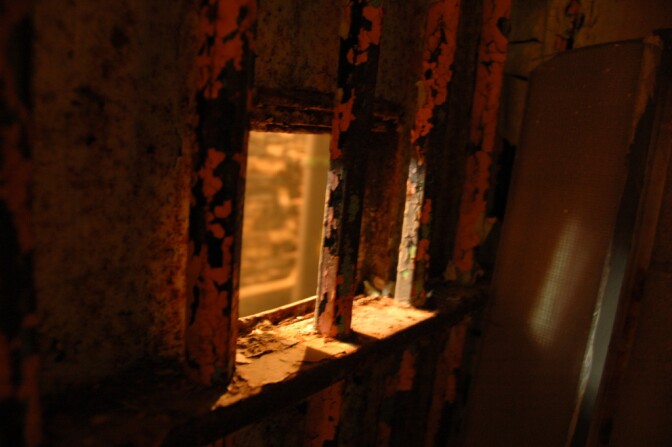Take Two translates the day’s headlines for Southern California, making sense of the news and cultural events that affect our lives. Produced by Southern California Public Radio and broadcast from October 2012 – June 2021. Hosted by A Martinez.
Ashker v. California settlement: Thousands of inmates will move out of SHUs

A settlement was reached Tuesday between prison officials and a group of inmates who sued them.
The case, known as Ashker v. California, was first filed in 2012 on behalf of a group of inmates who had spent 10 years or more in solitary confinement at Pelican Bay State Prison.
As a result of the settlement, thousands will be moved out of Security Housing Units, or SHUs.
is a reporter and producer for Reveal, a radio series and podcast produced by the Center for Investigative Reporting. He has also been covering this story from the beginning.
Montgomery says this all started back in 2011, when prisoners launched a hunger strike at Pelican Bay. Montgomery describes the HSUs there as "windowless" and "very stark." Some prisoners had been in solitary for 10 years, while others had been there since Pelican Bay opened in 1989. But the hunger strike did its job.
"It fueled this lawsuit, and the lawsuit got the backing of the Center for Constitutional Rights, and some high-powered lawyers got involved. It set in motion these legal developments," Montogmery said. "There were subsequent hunger strikes -- there were two more -- and that really did focus attention on not just these facilities, these segregation units, but the fact that California was holding men in these facilities far longer than any other state -- as we've said, 10 years, 20 years -- and often with very flimsy evidence."
What Ashker v. California has changed
Montogmery says the settlement has brought about several changes, some of which include:
- The "immediate" transfer of any inmate who has been in an HSU for more than 10 years to regular prisons
- Limits to how long any inmate can be held in a HSU
- Restricted custody, or developing alternative facilities within general population yards to house inmates that are considered dangerous, but who won't be locked down in solitary.
To listen to the full interview, click on the blue audio player above


